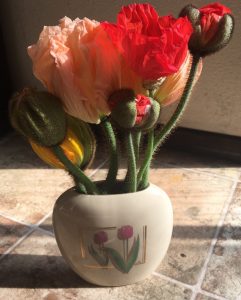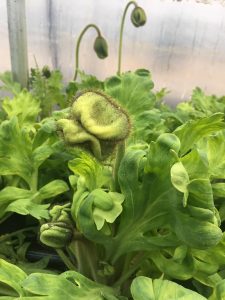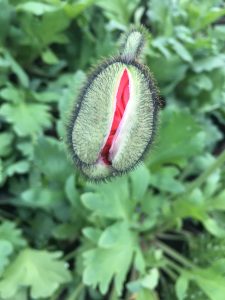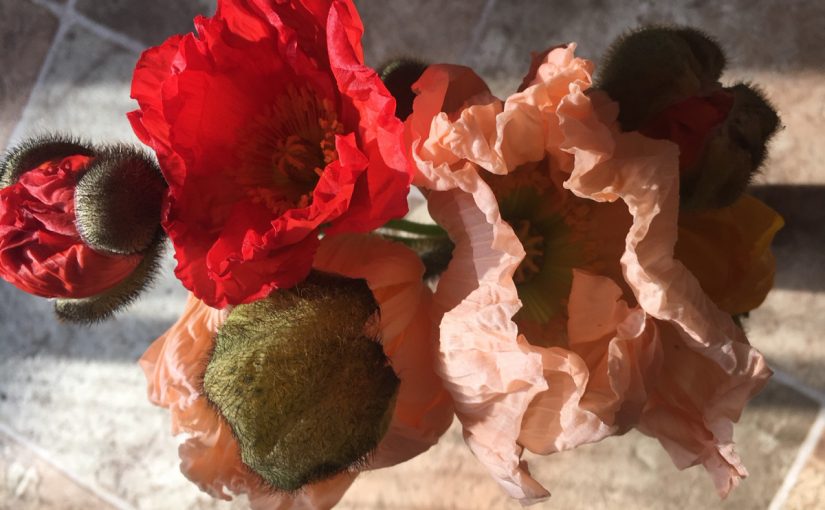Family: Papaveraceae (also in this family: opium poppy, California poppy, tree poppy, bleeding heart). In the order Ranunculales (meaning Papaveraceae is closely related to Ranunculaceae), Papaveraceae is considered to be cosmopolitan, although very few species found in the tropics. Members of this family are predominantly herbaceous, although there are a few small shrub and tree outliers.
Genus: Papaver (the 80 species in this genus are considered the “true poppies”)
Scientific Name: Papaver nudicaule

Photo: Allie Kuppenbender
Iceland Poppies are native to the Arctic region of North America and Eurasia. Iceland poppies, like all poppies, possess exceedingly minute seeds and long taproots that resent disturbance. In cool summer climates on well-drained soils, Iceland poppies can live 2-3 seasons, flowering from early spring to fall. Thus they are a hardy but short lived herbaceous perennial and can often treated as a biennial in gardens with the right conditions. Otherwise, they can be grown pretty much anywhere as an annual as they will not survive hot summers. (Iceland Poppy – Papaver nudicaule).
These flowers are composed of a single flower head that have four tissue paper like petals, with a center of many stamens. There are no leaves on the wiry, hairy stems; instead the leaves are basally arranged around where they stem pokes out of the ground (Iceland Poppy – Papaver nudicaule).

Photo: Allie Kuppenbender
According the Calyx Flowers, Inc., a grower of Iceland Poppies in Iceland Poppy – Papaver nudicaule:
- Zone: 3-9
- Bloom Time: early spring to fall, weather/temperature dependent
- Bloom Size: 2-4 in
- Height: Up to 24 in
- Soil: Needs loose soil and prefers neutral or alkaline soils to acidic.
- Site: Full sun, well-draining soil of average moisture
- Type: Biannual
- Seed Type: Dicotyledon
For best vase life:

Photo: Allie Kuppenbender
Harvest when the buds first crack and the color is just barely present into clean 1/2 gallon buckets and never reuse buckets as Iceland Poppies (and all poppies really) ooze a milky white latex substance that leaves the water murky. These delicate blooms don’t have too terribly long of a vase life, but can keep up to one week by daily changing the water. If transporting these blooms without water, burn the stems. This will ensure they do not ooze the latex.
SOURCES:
Jello Mold Farm (Mount Vernon, WA)
Iceland Poppy – Papaver nudicaule, Calyx Flowers, Inc.
Guide to Flowering Plant Families, Wendy B. Zomlefer
Plant Families: A Guide for Gardeners and Botanists, Ross Bayton and Simon Maughan
